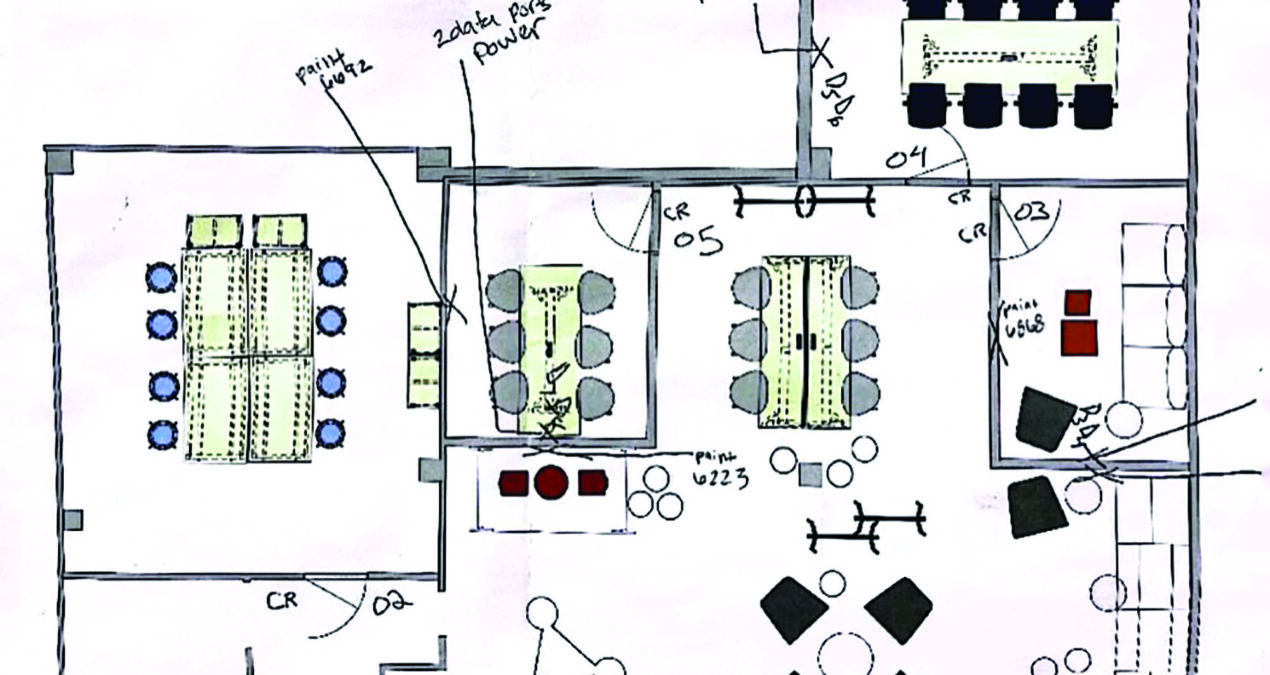Henry Gamble, News Editor—
In March 2023, DCGA Senators voted to allocate $150,000 for the renovation of the old Office of Community Values & Student Conduct office in the basement of Huffman Hall.
Under the leadership of then-student body President Alex Pan, the amount was provided through DCGA’s reserve fund, which at the time held close to $1 million. According to Pan, the reason for this surplus in funding was largely due to an accumulation of funds that went unspent prior to and during the COVID-19 pandemic.
This was due to a previous financial agreement between Denison’s administration and DCGA, where a lump sum of money would be allocated by the administration and then distributed by the organization, with the remainder being sent to a “reserve fund.”
A large driver for the creation of the new space is the surplus of student organizations and the lack of available spaces for them. According to denison.edu, the number of campus orgs now surpasses 160 with more being approved by DCGA’s Rules Committee every semester.
Dr. Nicole Ausmer, Associate Vice President/Dean of Student Life and co-advisor to DCGA, said: “we just don’t have the space anymore to give individual student’s offices or individual organization’s offices, but we still know that a gathering space is central to many student organization’s missions.”
The new space will be a co-working environment, which according to Patrick Fina, Associate Director of CLIC and co-advisor to DCGA, emphasizes “collaboration, communication, exchanging of ideas and getting to be with people that help you think differently.”
As Pan explained, such a space is only the continuation of Denison’s focus on relationship-building, inherently captured in its relatively small student population and four-year residential housing.
While collaborative spaces for student organizations are not new, Ausmer believes that the innovative and non-transactional approach of the Huffman space sets Denison apart from similar institutions.
To help create such an inventive environment, Fina has worked alongside DCGA for the past 10 months to re-imagine the space, ranging from structural modifications including the demolition of walls to the sourcing of a wide array of durable furniture.
The space will hold three different meeting rooms, which can each be reserved through WhatToDU by leaders of student organizations.
The largest of these rooms will be “a formal space for formal meetings,” as described by Fina, holding an executive-style table and seating. The two other meeting rooms will be slightly less formal, one of which will hold a six-person conference room and the last of which will be a relaxed conference space with a modular sofa and arm-chair. All three meeting rooms will be equipped with large screens, which can be used to project content by meeting hosts.
In addition to these meeting rooms, the space contains a large open room holding a variety of collaboration-conducive furniture as well as a storage room which will also host the new Campus Organization Resource Area, which is currently on Slayter’s third floor.
While no definitive date has been established for the opening of the space, both Fina and Ausmer anticipate its opening in January 2024, as students return for the spring semester.
Already in the 10 months since DCGA voted to move forward with the project, the space has been renovated and painted, with the first loads of furniture already beginning to arrive, a process which as Fina explained, typically takes 18-24 months.
For Pan, the tentative success of the Huffman space represents the best of student government, which at Denison is, “making strides to capture the best interests of the student body.”

